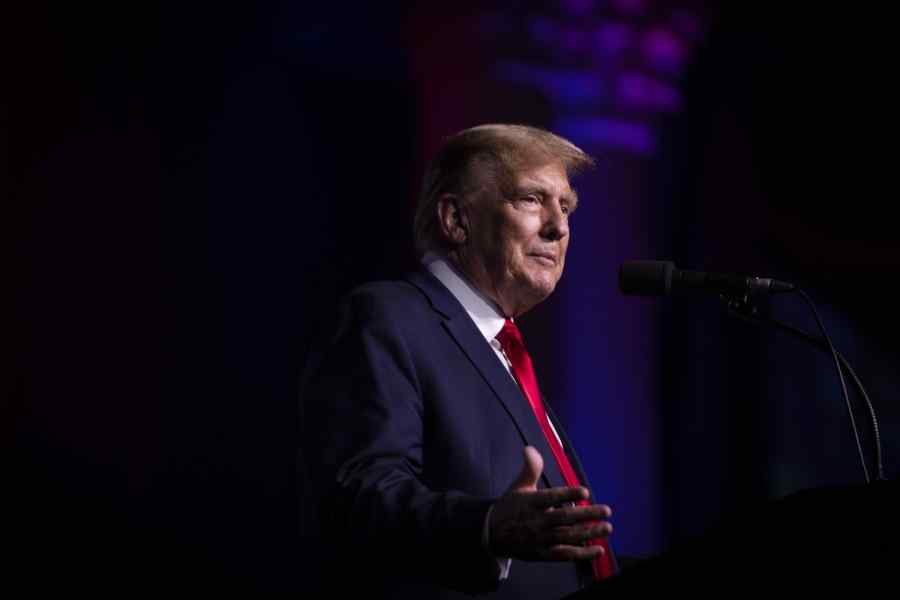The judge overseeing Donald Trump’s criminal case in Manhattan rejected his last-ditch bid to delay a trial beyond April 15, removing on Wednesday one of the final obstacles to the first prosecution of a former U.S. president.
Trump, who is accused of covering up a sex scandal surrounding the 2016 presidential campaign, had asked the judge to delay the trial until after the Supreme Court rules on whether he is immune from prosecution over official acts he took while president. That issue arose in another of his criminal cases, and the Supreme Court is expected to hear arguments this month, but might not rule until June.
The judge in the Manhattan case, Juan Merchan, ruled that his trial did not need to wait for the Supreme Court. He denied Trump’s effort as “untimely,” ruling that he had failed to request the delay by a legal deadline.
The judge said the request’s timing — just weeks before the trial was set to start — also raised “real questions about the sincerity and actual purpose of the motion.”
He added: “The circumstances, viewed as a whole, test this court’s credulity.”
Trump’s effort was his latest bid to delay his four criminal cases, which are unfolding against the backdrop of his campaign to regain the White House. If Trump can stall the cases until Election Day, and he wins the presidency, they would likely grind to a halt.
Some of his tactics have paid off. In Florida, where Trump is accused of mishandling classified documents, a Trump-appointed judge has yet to finalize a trial date. And in Washington, D.C., where a federal special counsel has accused Trump of plotting to overturn the 2020 election, the Supreme Court has paused the trial while it considers the immunity issue.
In the Manhattan case, Trump secured a three-week delay, from late March to mid-April, after new investigative records emerged. But Trump wanted to push back the trial further. His lawyers sought a 90-day delay, or an outright dismissal, blaming prosecutorial misconduct for the last-minute cache of documents.
That accusation carried little weight with Merchan, who recently confirmed the April 15 start date and rebuked Trump’s legal team.
Trump’s lawyers, Todd Blanche and Susan R. Necheles, declined to comment.
The Manhattan case stems from a hush-money deal struck with a porn actor, Stormy Daniels, in the final days of the 2016 campaign. In a 34-count indictment last year, Manhattan District Attorney Alvin Bragg accused Trump of falsifying business records related to the payoff.
Trump, the presumptive Republican nominee for president, has denied the affair and the charges, which he claims are politically motivated.
The effort to drag out the Manhattan case until after the Supreme Court addressed the immunity issue seemed particularly far-fetched.
The Manhattan district attorney’s office noted that Trump’s lawyers filed the request only 17 days before the trial was initially scheduled to start, months after they filed other pretrial motions.
Trump’s lawyers, Merchan noted, had already argued the same issue in federal court in Washington and yet had failed to raise it with him.
The judge also appeared skeptical that the immunity claim had direct bearing on the charges brought by Bragg.
At a hearing in February, Merchan said “the issue of the state proceedings I don’t believe is for the Supreme Court.”
In a footnote to Wednesday’s decision, Merchan wrote that Trump “does not appear to raise a claim of presidential immunity” that applies to the cover-up of the sex scandal.
The New York Times News Service











